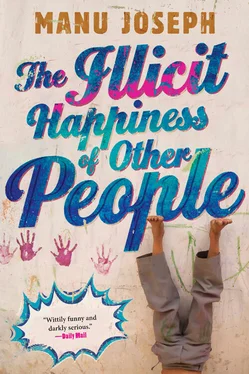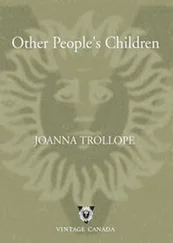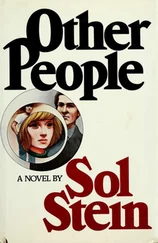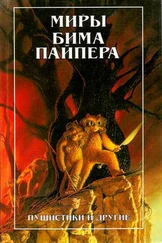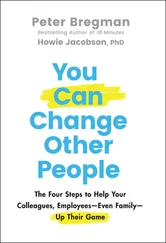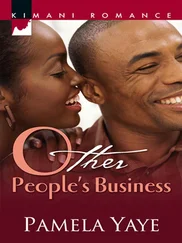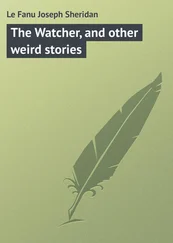The correct answer was plants, she said. Which is absurd.
Science is hard because it cannot be fully understood, it can only be accepted, like catechism. Maybe he should become a writer. But writing is hard, too. As a writer, Thoma must write like this: ‘He faced the western winds’. But how would Thoma know if a wind were a western wind? It terrifies him, that even writers must know a set of facts, that even writers must have information. Thoma does have information, but it always turns out to be wrong information as opposed to right information, which is useful.
‘What is the opposite gender of ram?’
It is amazing that every single person in the class had got the answer right, as if everybody had copied from a single source. ‘Ewe’. That was the answer. ‘Ewe’? How do people in Madras know such facts? Thoma’s answer was ‘Sita’. He received several slaps for that.
The boys wonder why H.M. Dorai has not arrived yet. Then they hear a loud thud in the next room. He is still there. They exhale in relief and that makes Gloria Miss laugh because it is inevitable that he will come, there is no escape. She is standing in front of the class, smiling, nodding her head. She is standing with her arms folded, so her breasts are bulging out of her blouse. He feels sorry for her because everybody knows she has breasts. It must be shameful. How do women go through life?
H.M. Dorai steams in, rearranging the air somehow. The stillness and the silence of the room collapse and in their place there is now a new stillness and a new silence. He looks as if he does not have much time and he knows what he must do. He has mad eyes, his gleaming black hair appears to tumble off his head as comic tides. And he has no arse. He places his thick cane and other things on the table and reads out eight names from a piece of paper. The boys rise and go to the door. They stand there, looking serious. He has chosen only those who failed in both science and maths. He looks at the boys and rolls up his sleeves. ‘Attention,’ he says. ‘And the special guests of the evening are …’ He calls out a name. The boy marches, swinging his arms, lifting his legs high, chanting, ‘Left, right, left.’ He is crying now and his ‘left, right, left’ sounds like a song. He stops in front of H.M. Dorai and bends his back. Dorai circles his hand on the boy’s back, and lands a hard blow. The boy stomps his leg, salutes, shouts ‘Thank you’, and walks back to his seat.
H.M. Dorai calls out the next name. When he is finished with all the eight special guests, there is a Silence of Anticipation. He should go away now but Thoma knows something is wrong. Dorai’s eyes had rested on him for a brief moment, and when they wandered away they had taken his image with them. That is not good.
Dorai takes his things from the table, and looks straight into Thoma’s eyes. He snaps his fingers and says, ‘Come with me.’ He stands outside the class and waits. Thoma goes to him. Dorai puts his face very close to Thoma’s.
‘Thoma,’ he says, ‘your father called me yesterday. Do you know why?’
‘I do not know, sir.’
‘He is asking questions about Unni. I told him I’ve nothing more to say, your father is asking a lot of people about Unni. Why?’
‘I don’t know, sir.’
‘Why is he asking questions about Unni, why now?’
‘I don’t know.’
‘People tell me that he has found something about Unni. Do you know?’
‘I don’t know, sir.’
‘Are you sure?’
‘I have no information,’ Thoma says.
Mariamma opens the door for Thoma with an absent-minded smile that holds him in its affection for a moment before she drifts to the other people who are not present. They exist in another time, when she was young and people were so important to her that she still remembers everything they told her. She answers them back now, after all these years, and they probably respond to her, wandering alone in their vast rubber forests in a faraway place, smiling at her memories sometimes, returning her scowls sometimes.
Unni told Thoma that their mother had a Condition, and that it had a name, as if the fact that it had a name was very good news. Thoma has forgotten the name Unni had mentioned. It had sounded important, though very male. ‘It is not a serious condition, Thoma, a lot of perfectly happy people have it.’
She is in the kitchen. Her sari is hitched up on one side, the hem bunched into her waist, and Thoma can see a long sliver of her bare, formidable thigh. So much of a woman’s legs he sees only at home. Mariamma, her lips curled into her mouth, wags a finger at the overhead cupboard. ‘Annamol Chacko,’ she says, summoning once again Ousep’s mother. ‘So you didn’t like my tea. You and your nine dumb daughters, you sit and whisper among yourselves and giggle at my tea. You say to thin air, “This is a cup of tea made by Mariamma, this is the tea made by an economics postgraduate.” And all of you laugh.’
She sees Thoma staring at her and first smiles in embarrassment, then bursts out laughing. Her sudden happiness fills Thoma with a Sense of Wellbeing. Other days, her voice is loud and it trembles in the air like a wail; she takes the full Christian names of Ousep’s mother and all his nine sisters, and on rare occasions she talks in a formal way to her own mother and someone called Philipose. When she is that way, her lip is curled in, head tilted upwards, and her index finger wags. And she is unmindful of everything around her. Unni could change her mood just like that, make her laugh and extricate her from the Torments of Memories. Unni would crack a joke, and she would reclaim her pretty face from the angry scowl, and begin to shake with laughter. But Thoma does not have the gift.
His mother surprises him with a packet of cashew nuts, and says, ‘The doctor, Thoma, the man with the rose garden, he is dead. It was heart attack.’ They sit facing each other across the dining table and eat. She does not place the cashews in her mouth as economics postgraduates normally do, she flings them in. Unni used to call her ‘Village woman’.
As a girl, she tells him as if she has never told him this before, she used to walk down the banks of a narrow silver stream with her friends, collecting fallen cashews and pebbles, and when the laps of their skirts could take no more they used to throw away some of the cashews. She cannot accept now that she has to actually buy cashew nuts.
She repeats things. That is her nature. ‘Hunger is the best side dish, Thoma.’ And when he is desperately studying on the morning of an exam, she will say, ‘This is what you do, Thoma, you study just hours before a test. When you are about to shit, you search for your arse.’ She used to tell Unni almost every day how big boys should behave with girls. Boys must not harass girls, must not Pass Indecent Remarks, must not stand too close to girls, must not stand too close to even little girls, must not touch them. All that has stopped, of course, because Thoma is too young for the lessons. There is something else that she does not mention any more. When she heard that the child of a working mother had got hurt by falling or was hit by a bicycle or knocked down by a cow, she would gather Unni and Thoma and say, ‘See, this is what happens to the children of working women. You are safe because your mother is always around, don’t ever forget that.’ With Unni gone, she has lost the right to say this any more.
‘How come we are eating cashews?’ Thoma says. ‘Sacred Heart Family Store won’t give you cashews without taking money. It is not an Essential Commodity. Did you pawn another bangle?’
‘I don’t have any more bangles to pawn.’
‘Did you sell your blood?’
‘No, Thoma. A lot of women came to our home to watch the doctor’s house. And they decided that they wanted to phone their husbands, they wanted to know that their husbands were all right. They gave me a rupee each. When a man dies in the neighbourhood, women think of their own husbands. I too had a long loving thought about your father.’
Читать дальше
